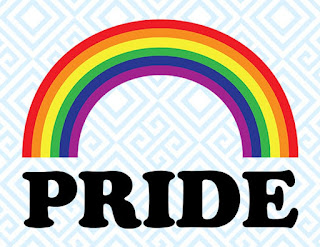D. H. Lawrence famously declared that there was no real battle between himself and the Catholic Church because, when it came to the religious fundamentals, he was in close accord. Thus, for example, he believes in a single almighty God, in esoteric doctrine, and in the power of a priest who has been initiated into the latter to grant absolution [1].
Having said that, Lawrence also believes that whilst Jesus is undoubtedly a Son of God, he is not, however, the only Son of God - and this, actually, does put him in in direct conflict with the central Christian teaching that acceptance of Christ is the sole means of salvation and knowing God. For as Jesus himself said (according to the Gospel of John):
I am the way, the truth, and the life: no man cometh unto the Father, but by me [2].
Or at least, this used to be the central teaching - but no longer for Pope Francis, it seems ... For yesterday, the Bishop of Rome concluded his three-day visit to Singapore by declaring that All religions are a path to God [3].
Such pluralism makes one wonder whether the Pope is actually a Lawrentian: for like Lawrence, he seems to believe that there are many saviours (with others still to come), so that "the great Church of the future" will recognise that men "are saved variously, in various lands, in various climes, in various centuries" [4].
I'm not a Catholic, but, if I were, I'd find this pretty outrageous; for here is the visible head of the Church not only calling for interfaith dialogue but essentially saying that not even Jesus can declare himself to be the way for all men and that - to paraphrase Lawrence - it is disastrous for any religion to assert itself above all others.
That's heresy, is it not?
Of course, the present Pope has a record for this kind of thing; even lending his support in 2019 to the placing of a South American pagan idol inside a church in Rome [5], and so I suppose nothing should surprise us.
As I'm not a Catholic or a Christian of any other kind, however, this isn't really a great concern to me. Indeed, as a reader of Lawrence, I'm inclined to agree with Ramón, that every people should "'substantiate their own mysteries'" [6] and "'speak with the tongues of their own blood'" [7].
Notes
[1] See D. H. Lawrence, 'There is no real battle ...', in Reflections on the Death of a Porcupine and Other Essays, ed. Michael Herbert (Cambridge University Press, 1988), Appendix I: Fragmentary writings, p. 385.
[2] John 14:6 (KJV).
[3] The Pope was quoted in the article 'All faiths lead to God: New controversy as Pope preaches religious pluralism on final day of tour', in The Catholic Herald (13 September 13, 2024): click here.
[4] D. H. Lawrence, 'There is no real battle ...', Reflections on the Death of a Porcupine and Other Essays, p. 385.
[5] See the post entitled 'On the Desecration of Altars and the Return of Strange Idols' (25 October 2019): click here.
[6] D. H. Lawrence, The Plumed Serpent, ed. L. D. Clark (Cambridge University Press, 1987), p. 427.
[7] Ibid., p. 248.



